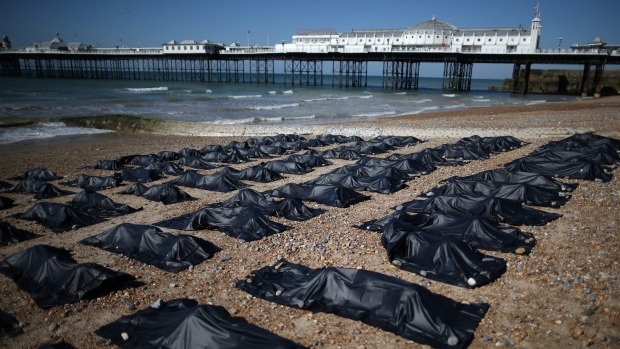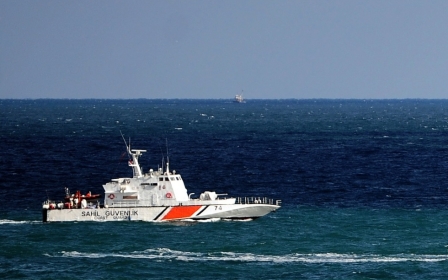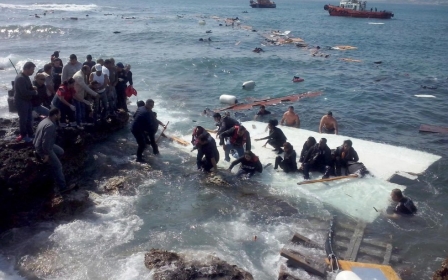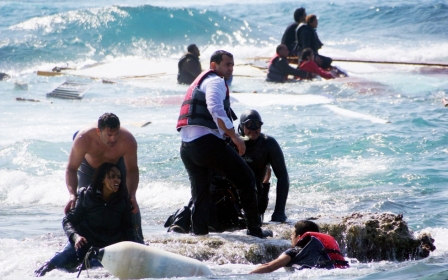UK contribution to Mediterranean sea rescue may be 'too little, too late'

The UK Prime Minister admitted on Wednesday that cutting Mediterranean rescue operations had been a mistake, as experts called into question the country’s current participation in a Europe-wide border control programme.
David Cameron admitted that the policy of squeezing funding for search and rescue programmes in the Mediterranean, the world’s most dangerous migrant crossing, “hasn’t worked,” in comments made to ITV.
The UK announced last October that it was cutting support for migrant rescue programmes in the Mediterranean, because of a fear that rescuing drowning migrants on their way to Europe would encourage more to follow in their wake.
Since the withdrawal of the rescue operations, the Mediterranean has seen a more than 50-fold increase in the number of deaths so far in 2015 compared to 2014.
Refugees from war-torn Syria made up the fourth-largest group among those arriving on Italian shores so far in 2015.
Now, with increasing scrutiny over the policy dubbed “let them drown” by campaigners and human rights groups, details are emerging of the UK’s contribution to a European search and rescue mission in the Mediterranean, known as Operation Triton.
UK politicians on Wednesday blamed Europe for the decision to cut funding for sea rescues, with Deputy Prime Minister Nick Clegg writing that "the EU's decision to end routine search-and-rescue operations...was taken with good intentions".
However, the government's failure to fund Operation Triton was a decision taken solely by the UK, which in May 2014 opted out of a key EU regulation that mandated "solidarity and fair sharing of responsibility" in EU asylum policy, including sea rescue operations.
Operation Triton is run by Frontex, a Europe-wide coordination agency, and the majority of its core costs are centrally funded by the EU.
However, the programme relies on voluntary contributions from EU member states and others. Iceland, which is not part of the 28-member body, has had its coastguard’s flagship vessel stationed in the Mediterranean for five months.
Operation Triton, which has so far saved over 8,500 lives since its launch in November 2014, makes use of seven ships, two planes, one helicopter and 65 border control experts contributed voluntarily by European countries.
Of these overall resources the UK, the third wealthiest country in the EU, supplies just five personnel.
That contribution has been quietly scaled up in 2015, from an initial pledge of one screening expert.
The only cost to the UK for this contribution is the salaries of the five personnel, according to a Frontex spokesperson who spoke to Middle East Eye.
“We reimburse costs – the costs of fuel for ships and equipment, for example, as well as travel costs and room and board for personnel like border guards and immigration experts,” said Ewa Moncure, a senior Frontex spokesperson.
The UK Home Office, which controls the country’s immigration policy and is under fire from campaigners over its decision to cut funding for Mediterranean sea rescue, has said that it is willing to respond to requests by Frontex for increased financial or material assistance.
“The UK has agreed to all requests from Frontex to provide support, and will continue to do so,” according to a Home Office statement to MEE on Monday.
However, MEE has since learned that all requests for funding must first be channelled through Frontex’s executive board, which is made up of member states including the UK.
“Requests for help from Frontex are voted through by the organs of the body, which are composed of state representatives,” according to Seline Trevisanaut, an assistant professor of international law at Utrecht University who specialises in maritime law and has written extensively on the legal framework surrounding migrant rescue operations.
'Too political'
The Home Office has refused to comment on the level of its financial contribution to Operation Triton, with a spokesperson saying the issue is deemed “too political” in the run-up to a hotly-contested general election on 7 May.
The UK’s current government, a fractious coalition of conservatives and liberals that has been in power for nearly five years, has come in for harsh criticism from political opponents over its sea rescue policy.
The centre-left Labour party has demanded a “comprehensive international approach” to the growing problem, which has seen over 2,600 people killed in the seas off Europe so far this year.
The leftist Green Party, meanwhile, called on the UK to “immediately pledge funding” to ongoing rescue efforts.
In the face of calls for change, a Home Office spokesperson said that there would be “new developments” this week in the UK’s contributions to Operation Triton.
EU foreign ministers will convene on Thursday in their second emergency meeting on the issue in a week, after over 1,000 people died trying to reach Europe’s sea borders in a seven-day period.
After admitting that the policy of cutting sea rescues had been ineffective, with numbers of people attempting the crossing remaining steady, Cameron said that the UK and Europe “need to do better”.
“I will go to this meeting on Thursday with a British contribution about what more we can do,” he said, not giving further details of any packages to be offered.
Despite promises of change, analysts are sceptical as to whether the UK will significantly increase its contribution to Operation Triton.
The UK’s response to the current crisis, according to Nick Witney, senior policy fellow at the European Council on Foreign Relations, “is likely to be a series of half measures”.
“Over time we will get up to something close to Mare Nostrum,” a year-long Italian mission that saved over 150,000 people at three times the cost of Operation Triton.
“But it will be too little, too late,” Witney said.
Middle East Eye propose une couverture et une analyse indépendantes et incomparables du Moyen-Orient, de l’Afrique du Nord et d’autres régions du monde. Pour en savoir plus sur la reprise de ce contenu et les frais qui s’appliquent, veuillez remplir ce formulaire [en anglais]. Pour en savoir plus sur MEE, cliquez ici [en anglais].




